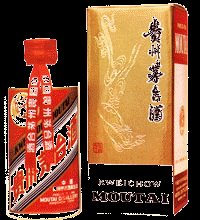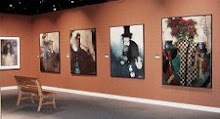
More random thoughts on returning from China:
1. What to Pack.
As with travel to any foreign country, follow the advice of the travel writer who once advised, "pack no more than you can carry at a dead run for half a mile." Whatever you may have forgotten, you'll find it in China -- and probably for a lot less than you'd pay anywhere else. If you plan on shopping, consider throwing in one of those foldable light-weight dufflebags in a pouch. You can stuff it with your bootie before the return flight.
2. Money
As with travel to any distant place, from New York to Newcastle, monetary precautions are in order. A money belt is a good idea for your cash. Traveler's checks will work in the Chinese cities and towns we visited, but even in Beijing you'll find it easier to cash them at the Bank of China or in hotels that frequently cater to foreigners. Credit cards are far less useful except in hotels that cater to foreign guests. Surprisingly, they are not accepted at most shops or even many major department stores.
Cash can be exchanged at banks and most hotels. ATM machines will connect you with your home country bank for more cash, but only if you've taken the precaution of making sure your password meets international banking conventions. Contact your local bank for details.
3. Calling home.
U.S.A. cell phones by certain wireless companies (Verizon among them) work in many parts of China, although there is an additional connection fee. We found text messaging less successful. Laptop computers with a Wi-Fi connection are usable throughout major cities and in many smaller towns off the beaten track.
4. Business cards.
If you anticipate meeting with local friends or colleagues, be sure to bring plenty of personal business cards. If you don't have any handy, print some up on your home computer. In China, it is customary to present your card, and accept the card of others, with both hands. For added effect, try printing your name and other information in Chinese characters on the reverse side of your card. Free translation sites on the Internet will give you word-for-word equivalents in Chinese characters that proved, for us, to be accurate and deeply appreciated by many of our Chinese acquaintances.
5. Small gifts.
As many experienced foreign travelers know, small gifts of nominal or minor value often are appreciated, especially if you're invited into the homes of locals. For Americans, the trick is to find something quintessentially American that's not labeled "made in China." Forget Wal-Mart.
Among other items, we found the following lagniappes successful: boxed notecards, small calendars, refrigerator magnets, stationery, and the like which reproduce American art or landscape scenes (available at your local art museum's gift shop) ; a bottle of bourbon or domestic wine; American-made cigarettes (Chinese friends report they really do taste better than the same brands sold in China); American-made gift boxes of chocolates; and for children newly minted U.S. coins, colorful stamps, small picture books or locally-produced finger-puppets.
6. English-Mandarin Dictionary
The push is on in China to teach English. We were told by one school principal that English is a required subject for at least two years in the elementary grades. (Walking down a street in one rural village as school children were heading home for the evening, we repeatedly were hailed by 8-to-10 year olds with perfectly-pronounced "Hello's" and "How are you's?" -- followed by self-conscious giggles when we replied with the expected conversational English, "I am fine" and "How are you?")
The Chinese government recently announced an ambitious program to develop better English language textbooks. (Similarly, we read in China that American textbook publishers are eager to improve Mandarin language texts for English speaking students.) Consider bringing along a couple of English-Chinese dictionaries to give away, if it seems appropriate, during your travels.
7. English language books.
Standard American guidebooks, most of which are sadly out of date, caution that books are sometimes confiscated from foreigners at Chinese customs posts. Maybe so. But we saw nothing remotely like that affecting any of the two hundred jumbo jet passengers who alighted with us at the airport, although nearly everyone seemed to be carrying at least one or two books.
In retrospect, we might have packed a couple of Ansel Adams photography books or classic American novels such as "Tom Sawyer," "House of Seven Gables," "Moby Dick," and "To Kill A Mockingbird." We could find none of these in the 'foreign language' (English) section of the largest bookstore in Beijing, although we did see a paperback of Red Bad of Courage and, to our surprise, one copy of Kurt Vonnegut's Slaughterhouse Five.
8. Food.
Unless you're staying in a five-star hotel that caters to foreign tourists, don't expect typically American food for breakfast -- or any other meal. A few such hotels provide instant Nescafe coffee in individual packs. Elsewhere, "Nescafe" instant packages are available in almost all grocery stores even in remote, rural villages and towns.
Although McDonald's and KFC are common in large city centers and some smaller towns, the food isn't quite the same -- and why would you want to eat it, anyway?
9. Toiletries
If you plan on leaving the larger city, be sure to pack at least one roll of toilet paper. Deodorant and feminine hygiene products are hard to find anywhere. Practice a baseball catcher's squat in your hiking shoes, gals, before leaving.
No. 10. Moutai
Moutai is the favorite national alcoholic drink, a potent aperitif made from sorghum and wheat, often used in toasts at group dinners. It happens to be nearly the same color as many teas. Most toasts require you to down the whole drink at a gulp. So, if you find yourself on the receiving end of more toasts than your liver can handle, try surreptiously filling your own glass with tea and continue toasting away!







No comments:
Post a Comment